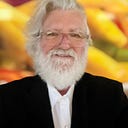Storytelling and writing in the time of the pandemic
2020 has been a challenging year for storytellers, especially those of you who, like me, depend on our art for our livelihood. Like you, I suddenly found myself facing a rapidly emptying work calendar as the pandemic closed down one live performance and workshop booking after another. Initially, I hoped it might only be for a couple of months but it soon became clear that I was unlikely to be doing any live events for the remainder of the year and for an indeterminate time into 2021.
Like you, I have turned to online platforms like Zoom, Facebook, and YouTube to reach my audience. And while these have been helpful in staying connected and presenting my material to new audiences, I have also been left feeling bereft at times. I’m sure you agree that the art of oral storytelling depends very much on a live connection with your listeners — “eye to eye, mind to mind, and heart to heart” — and virtual storytelling just doesn’t provide that connection. I wondered why I often felt drained and disconnected after a virtual performance. I need to feel people in the room, hear them breathe, see their faces. I’ve also discovered that audiences expect that most of what they watch on social media comes to them for free. It hasn’t been easy to persuade people to pay to watch and listen to me tell stories online when there’s so much out there already for free.
So, while dealing with the challenges of marketing in the digital era, I decided I would need to turn to other ways of expressing myself through stories. I recently joined a Writers Guild in my city and have found myself spending more time writing stories and signing up for creative writing courses online where I’ve met a number of interesting writers. Inspired by them, I’ve begun writing a collection of short stories, one of which was recently published in an anthology. Ok, I’m not going to survive solely on my writing (not yet) but the Guild has introduced me to a number of writing competitions and contests that do offer some prize money and provide motivation and accountability.
Yet as much as I love writing stories, I still needed to think more broadly and deeply about how I might use my skills at storytelling to create work. Storytellers are good at communicating and listening. We’re inclusive and compassionate. We work with a wide range of children and young people as well as adults and organizations. I have a background in teaching and counselling. To make a long story short, I followed up my interest in death, dying and grief and completed my training in end-of-life planning. I also developed a program in legacy coaching, helping older folk share their stories, their wisdom and their appreciation with their loved ones. This has resulted in me coaching men and women online for an end-of-life planning organization based in the U.K. And they pay me. It’s part-time but it suits me and has provided me with income while pursuing my passion for story and storytelling.
How has the pandemic impacted you and your work? How have you responded? Adapted? Is online storytelling the new wave of the future? Has the pandemic opened new opportunities for you? Is your creativity intact? Flourishing? Please share your experiences. I’m sure we can all benefit from your story.
Michael Williams has been a member of the SCCC since 2017. He is a grandfather, storyteller and writer and an accredited End-of-Life Planning Facilitator for Before I Go Solutions (www.beforeigosolutions.com). After living in Scotland for 30 years, Michael returned to his hometown of Hamilton Ontario to care for his brother. One day, when the pandemic has passed, he hopes to return.
Email: iamthestoryteller@gmail.com
